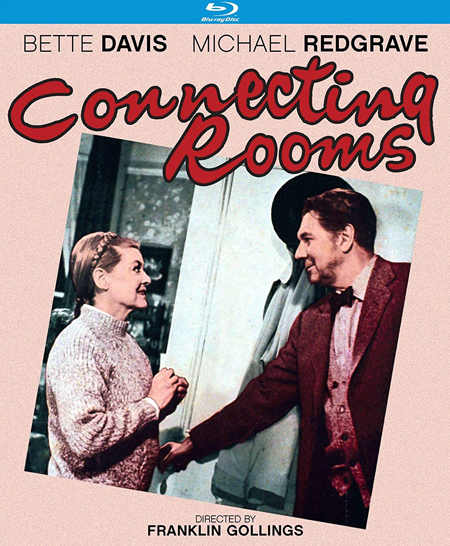
“BOARDING
HOUSE BLUESâ€
By
Raymond Benson
Having
never heard of this British production prior to the release of Kino Lorber’s
new high definition transfer of the picture, this reviewer approached it with
caution. It was much better than expected. Luckily, there is much to be said
about Connecting Rooms.
Based
on a stage play called The Cellist by Marion Hart, the screenplay was
written by director Franklin Gollings. It’s a low-budget affair that was shot
in London in 1969, and there is a decidedly TV-movie feel about it. The picture
was first released in 1970 in the United States, of all places, and didn’t
receive a U.K. release until 1972.
What
Connecting Rooms has going for it is the presence of the remarkable
Bette Davis, who delivers a note-perfect late career performance as Wanda, an
aging cellist who lives in a seedy boarding house in London. Every night Wanda
goes to “the theatre†to perform, but we never see this happening. We do witness
her practicing in her room, and she seems to be quite an accomplished musician.
It’s obvious, though, that Wanda is very lonely and yearns for some kind of
personal connection, and she has secrets.
Wanda’s
room connects to another one, and the door in-between does not lock. It also
easily swings opens when there’s a strong breeze through one of the windows in
either room, or if one leans on it. James (Michael Redgrave, who in the film
looks astonishingly like Alec Baldwin does now), moves in to the
adjoining flat. One can see there is something wrong. He is a schoolmaster, but
he is mysteriously out of a job and down on his luck. We learn later what the
malady is (he was falsely accused of an inappropriate relationship with a male
student but was sacked anyway).
There
are other colorful characters in the boarding house. Mickey (Alexis Kanner) is
an obnoxious, but charming, young songwriter/playboy who uses Wanda for what
little money she has, and is also doing everything he can to get one of his
compositions to a famous French singer, Claudia (Olga Georges-Picot), including
seducing her. The landlady, Mrs. Brent (Kay Walsh), is a nosy parker who simply
walks in on her tenets any time she pleases and isn’t beyond criticizing what
she perceives as flaws in their personal lives.
Of
course, as the story unfolds, Wanda and James develop an attraction and we
learn the truths about our lead characters. As previously noted, Davis is quite
good and carries the film. Redgrave also delivers a heartbreaking performance,
and it is the chemistry of these two that elevate the picture above Lifetime Channel
Movie status.
Of
possible note to James Bond fans—there is a connection. The hands (and sounds)
of classical cellist Amaryllis Fleming—Ian Fleming’s half-sister—appear in
place of Davis’s when she’s playing the cello.
Kino
Lorber’s presentation looks fine, and it comes with an audio commentary by film
historian David Del Valle. There are no other supplements other than trailers
for this and other Kino releases.
An
effective study of “boarding house blues,†Connecting Rooms is worth it
for the acting by two cinema veterans.
CLICK HERE TO ORDER FROM AMAZON